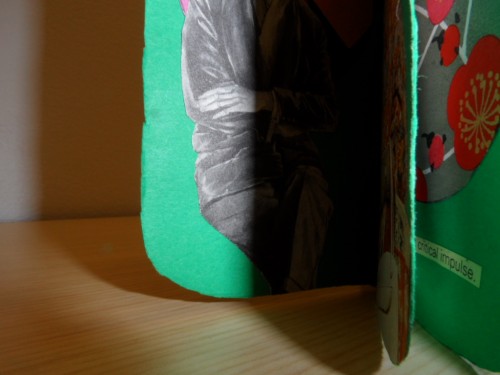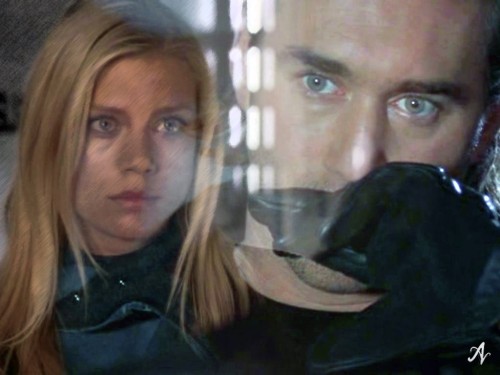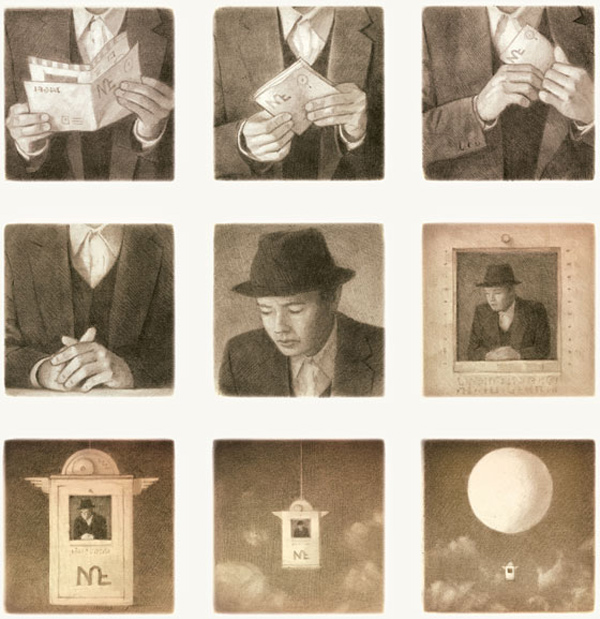Novel Writing, Cooking, Walking, Running

If you are a fiction writer, you will inevitably be asked when you plan to release a novel. If you don’t have an answer to that question, or if the answer to that question is, “I have no idea,” or “never,” other writers will look at you strangely. There is an expectation, for fiction writers, that your primary ambition is to produce novel-length work despite a professional education system (the MFA system) that, for better or worse, focuses primarily on the craft of the short story. The short story, while fairly popular in literary magazines, often seems beleaguered within the greater context of the publishing industry. There are lots of notions that the reading public is not interested in the short story and as such, there is less need for a genre for which there is not a significant audience.
Most of the advice about finding an agent implies that if you don’t have a complete novel draft or one well underway, you shouldn’t even bother with seeking representation because short story collections don’t sell. This mantra is repeated over and over although there is ample evidence that it is, indeed, possible to publish a short story collection. Certainly, publishing a story collection is more challenging, particularly with bigger presses, than publishing a novel, but I read collections regularly and don’t foresee that changing anytime soon. I cannot be alone in enjoying short story collections and finding them abundant. Nothing is ever as dire as the rhetoric implies until, of course, you have written nothing but several short story collections and they are sitting, quietly, on your hard drive, gathering virtual dust.
Vonnegut Gives a Free Creative Writing Lesson From the Grave
I suggest all you Harper’s/New Yorker haters get on Lewis Lapham’s Quaterly boat. Personally, I can’t believe I’ve been out to sea so long since parting ways with The Believer, although I do still find myself running fuzzy fingers sidelong across her stilted bow anytime I see one in port.
Anyway, so umm… O yeah click of his graph for Vonnegut’s writing lesson, in which he compares the plight & plot of protagonists in popular books, film & teevee, to that of Cinderella, Gregor Samsa & the kingshit himself, Hamlet.
Bookmaking: Handcrafting Isn’t Dead
I walked into the Writing Center after teaching a course on copyediting last week and found a tableful of mums-the-word students working away diligently on handmade zines. The table was piled with paper and tape, drawing implements, glue. On a nearby table, DIY snacks: celery, peanut butter, hummus, raisins. Two of our Student Writing Assistants organized said zine workshop, provided guidance and ideas and supplies, and BAM! instant zine community.
Bookmaking: !@#$%^&*
[In this series I will think aloud about the multifarious process of publishing a first book.]
The first time I ever cursed was in the fourth grade. I’d just transferred out of Catholic school to public school. I was standing at the door to Mrs. Rogers’ portable classroom, friendless and waiting to be dismissed, when I mouthed the word “shit.” Then I whispered it. Then I said it. Just like that. Shit! I couldn’t stop smiling.
I didn’t feel the same exuberant freedom again until I was 18 and shaved my head. I remember looking into the rearview mirror of my ’86 Le Sabre after I’d buzzed my hair off; I couldn’t stop grinning.
I’m 33, and it just happened for the third time. For weeks I’d been awaiting the publication of my first book, but I’d become petrified of its first poem—that it IS the first poem in the book with its one goddamn, one fucker, and one motherfucker in 20 lines, and that certain people (such as my Italian Catholic grandmother) would read that first poem and get their feathers ruffled, feel disappointed that I’m actually such a no-good heathen. What were my publishers thinking?
This poem will always be the first poem of the book. It’ll always set a tone, which is why it’s the first poem. It’ll be there to remind me that I like to run my mouth (but also to remind me that I enjoy mis-hearings, misunderstandings, and even occasional misanthropy). That’s a lot of pressure for one little guy in a sea of bigger fish (it’s close to the shortest poem in the book).
Then I got my author copies in the mail, and I realized that the language I very deliberately chose for this poem—and every poem—simply embodies my fourth-grade epiphany or my freshman-year hair buzz, those times I used my body as the subject of my own story, pleasuring in the language of the forbidden, simultaneously defining and deferring definitions (the eternal tension of différance), and felt the freedom therein.
Basically, I’m saying that if I ever go to hell, I hope it’s because of my motherfucking mouth. That’s not all I’m saying, but it’s a start.
The Terrible Satisfactions of Fan Fiction (and Writing Who We Know As Fan Fiction)
In the late 90s, I was obsessed with a television show on USA Network, La Femme Nikita,* which was vaguely based on the wonderful French movie La Femme Nikita and the horrible remake Point of No Return. The show centered around Nikita, a woman who was forced into being a government agent for a nefarious covert agency who often had to consider the greater good while doing bad things. There were all kinds of supporting characters like Michael, her love interest and the main who trained Nikita as an agent, Birkoff, the computer genius who helped run the covert operations from headquarters, Operations, the dastardly man in charge of Section (the covert agency), and Madeline, Operations’s sometimes lover and the second in command at Section, and also worked with Nikita who was the tormented emotional core of the show. The show was filled with angsty goodness in each episode as Nikita struggled with the life she was forced into, having to kill or be killed. She had freedom, but only so much. She had Michael, but only so much. It was romantic and agonizing and wonderful. Sometimes, I wanted more than what I could get from a one hour episode. That’s how I learned about fan fiction, where fans of the show wrote elaborate stories using the characters and the world built within the show as a starting point for telling new stories. There were hundreds and hundreds of stories that asked and answered the question, “What if?” posed in countless different ways. I could read stories about Nikita marrying Michael and having a child and negotiating their careers as spies, or Birkoff and Operations having an affair (SLASH), or Nikita and Operations having an affair, or Nikita escaping and starting over only to be caught, or Madeline taking over Section or Nikita going rogue. The permutations were endless and there was something terribly satisfying about seeing just what was possible within the Nikita universe when the characters were freed from their creators.
The Poetics of Non-Arrival: KAFKA
“Am I a circus rider on two horses? Alas, I am no rider, but lie prostrate on the ground.”
–Franz Kafka in a letter to Felice Bauer, 1916
He was talking about the Jewish horse and the German horse
(But there is also the Czech horse.)
What horse did Kafka ride?
Where does Kafka belong?
Who owns Kafka? *
These sentences kill me.
Imagine: prostrate on the ground.
That’s what an exilic existence is like
Prostrate on the ground.
Living in the place that is no place
Riding the no horse
Going nowhere, only not-here
With no language
Never quite comfortable in any language. **
When the narrator in the story “My Destination” is asked where he is going
He says,
“I don’t know.”
“Away from here, away from here.”
“Always away from here, only by doing so can I reach my destination.”
Always away, never arriving. ***
Butler: “…the monstrous and infinite distance between departure and arrival….”
Kafka: “For it is, fortunately, a truly immense journey.”
.
.
.
NOTES
* [I love this essay about Kafka by Judith Butler.]
** [Butler: “We find in Kafka’s correspondence with his lover Felice Bauer, who was from Berlin, that she is constantly correcting his German, suggesting that he is not fully at home in this second language. And his later lover, Milena Jesenská, who was also the translator of his works into Czech, is constantly teaching him Czech phrases he neither knows how to spell nor to pronounce, suggesting that Czech, too, is also something of a second language. In 1911, he is going to the Yiddish theatre and understanding what is said, but Yiddish is not a language he encounters very often in his family or his daily life; it remains an import from the east that is compelling and strange. So is there a first language here?”]
*** [Kafka: “Written kisses don’t reach their destination, rather they are drunk on the way by the ghosts.”]
On Being Clever
 If you’re over eight years old, you don’t want anybody calling your art clever. Right? Clever is bad. Smart is good, maybe the best kind of smart is so smart it’s stupid. Dumbstruck. Two fish / this is water. Bill, a guy my father hated, out on the roof fixing our swamp cooler in the kind of beautiful July afternoon that gives California the best avocados. And Bill calls out: “Ain’t there just some days you’re glad to wake up?” And my father, talking to Bill through the slats of the swamp cooler, agrees. This is so stupid it’s smart. But it would’ve been clever if my father had said “Yeah, and there’s other days I’m just glad to fall asleep.” Too clever by half. Clever as measurement. Clever as cleaver. Perhaps from E.Anglian dialectal cliver, “expert at seizing,” Influenced, perhaps, by O.E. clifer “claw, hand.” Sammy Johnson said: “This is a low word, scarcely ever used but in burlesque or conversation; and applied to any thing a man likes, without a settled meaning.” Clever of me to say Sammy instead of Samuel, to make you think an extra nano-second who I mean, clever doesn’t want to give the other person credit (of course I knew you meant Samuel, asshole), clever means I’m hungry to catch the bus before you. Clever basically as cowardice and fear of intimacy. Right? READ MORE >
If you’re over eight years old, you don’t want anybody calling your art clever. Right? Clever is bad. Smart is good, maybe the best kind of smart is so smart it’s stupid. Dumbstruck. Two fish / this is water. Bill, a guy my father hated, out on the roof fixing our swamp cooler in the kind of beautiful July afternoon that gives California the best avocados. And Bill calls out: “Ain’t there just some days you’re glad to wake up?” And my father, talking to Bill through the slats of the swamp cooler, agrees. This is so stupid it’s smart. But it would’ve been clever if my father had said “Yeah, and there’s other days I’m just glad to fall asleep.” Too clever by half. Clever as measurement. Clever as cleaver. Perhaps from E.Anglian dialectal cliver, “expert at seizing,” Influenced, perhaps, by O.E. clifer “claw, hand.” Sammy Johnson said: “This is a low word, scarcely ever used but in burlesque or conversation; and applied to any thing a man likes, without a settled meaning.” Clever of me to say Sammy instead of Samuel, to make you think an extra nano-second who I mean, clever doesn’t want to give the other person credit (of course I knew you meant Samuel, asshole), clever means I’m hungry to catch the bus before you. Clever basically as cowardice and fear of intimacy. Right? READ MORE >
Depression and the Kinesthetic Theory of Writing
Sometimes the holy writing spirit possesses you.
There’s no summoning it. I’m beginning to understand that now.
Not like that. Not like: SIT DOWN TO WRITE AND BE INSTANTLY INSPIRED.
There are conditions
There are kinesthetic conditions
There’s running downhill in the park as the rain approaches and the top of your head flies off like a hat getting blown away by a gust of wind.
There is inside the sensation of bodies touching bodies that move toward each other bodies that approach trembling but without fear.
There’s the orange light in the rain-paved streets and the stranger under the bridge.
Hello stranger I am lost.
These are things I cannot generate my own, alone in a room.
There are kinesthetic conditions
Sore muscle conditions
And the understanding that the more I move,
The more I will be able to access the world.





